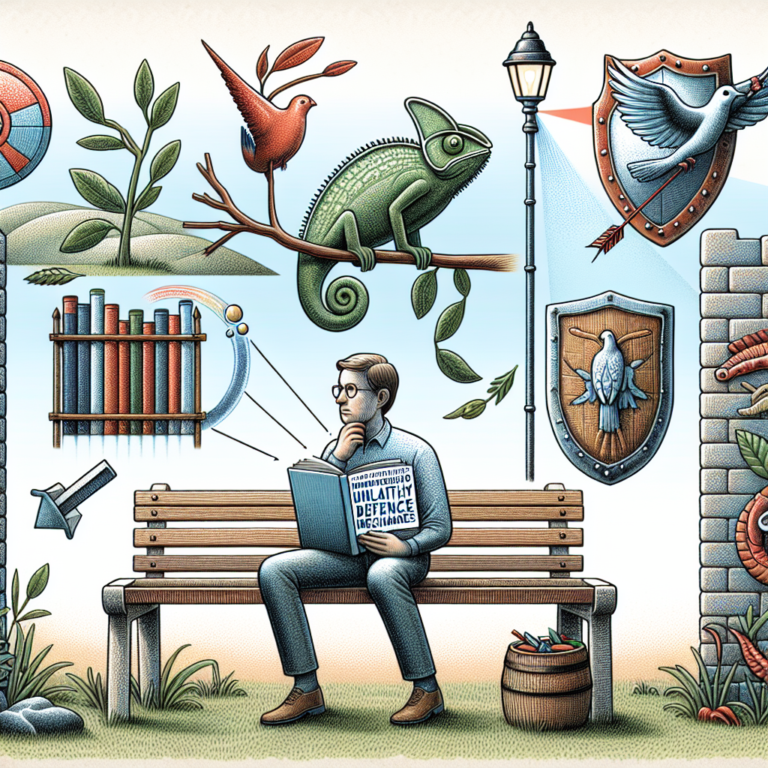
Introduction
In a world that often celebrates extroversion, the quiet, introspective nature of introverts can sometimes feel overlooked. Yet, as we dive into the realm of personality types, it becomes evident that introverts possess an array of unique gifts that deserve recognition. "Introverts Unite! Celebrating the Unique Gifts of Introverted Personalities" isn’t just a slogan; it’s a powerful movement aimed at understanding the value that introverts bring to society. Grab a cup of tea, settle in, and let’s explore how these gifts can enhance not only individual lives but also our communities as a whole.
Understanding Introversion: What Makes Introverts Tick?
Defining Introversion
Introverts are often described as individuals who gain energy from solitude and reflective environments rather than social interactions. According to Carl Jung, the psychologist who first popularized the concept of introversion, this personality type prefers introspection and deep thinking to the fast-paced stimulation of the outside world.
Key Traits of Introverts:
- Preference for solitary activities
- Deep focus and concentration
- Thoughtful decision-making
- Preference for meaningful conversations over small talk
The Science Behind Introversion
Studies have shown that introverts process information differently than extroverts. Research indicates that introverts have higher levels of activity in the brain’s default mode network, which is responsible for self-referential thought, memory, and planning. This helps explain why introverts excel in areas that require creativity and strategic thinking.
Introvert Extrovert Continuum
Not all introverts are the same. The continuum of introversion and extroversion presents a spectrum on which individuals may fall. Some may identify as ambiverts—people who exhibit traits of both personality types. This classification allows for nuanced discussions on personality, ultimately leading to a better understanding of human behavior.
The Unique Gifts of Introverts
The Power of Deep Thinking
One of the foremost gifts of introverts is their ability to engage in deep, thoughtful consideration. This deep thinking often results in creative and innovative ideas. Introverts tend to take their time processing information, leading to unique insights that extroverts might easily overlook.
Case Study: Susan Cain and "Quiet"
In her bestselling book "Quiet: The Power of Introverts in a World That Can’t Stop Talking," Susan Cain highlights the strengths of introverts in various settings—particularly in leadership. Her research reveals that introverted leaders tend to exhibit humility, reflective thinking, and the ability to prioritize the team’s needs over their own.
Analysis: Cain’s work emphasizes that "Introverts Unite! Celebrating the Unique Gifts of Introverted Personalities" isn’t just a catchy phrase; it’s rooted in real-world benefits for businesses and organizations.
Exceptional Listening Skills
Introverts are naturally attentive and empathetic listeners. Their inclination to observe and reflect allows them to pick up on nuances in conversations, making them capable of understanding others in-depth.
Case Study: Brene Brown’s Research on Vulnerability
Brene Brown, a researcher known for her work on vulnerability and empathy, identifies introverts as key players in fostering meaningful connections. Introverts often create safe spaces for others, which is crucial for open discussions about difficult topics.
Analysis: Brown’s findings showcase how introverted individuals can transform not only personal relationships but also workplaces by nurturing trust and vulnerability.
Creativity and Innovation
The quiet reflection that characterizes many introverts often serves as fertile ground for creativity. Introverts tend to think outside the box; their ideas often challenge conventional wisdom.
Chart: Creative Fields Where Introverts Excel
| Creative Field | Notable Introverted Figures |
|---|---|
| Literature | J.K. Rowling |
| Visual Arts | Vincent van Gogh |
| Music | Beethoven |
| Technology | Bill Gates |
Analysis: The data compiled demonstrates how introverts have made significant impacts in diverse creative fields, reinforcing the notion that "Introverts Unite! Celebrating the Unique Gifts of Introverted Personalities" can lead to influential contributions across disciplines.
Leadership and Management Styles
Introverted leadership has gained traction, especially in recent years. Introverted leaders often exhibit a calm demeanor, strategic thinking, and a strong focus on long-term goals.
Case Study: Bill Gates and the Introverted Leadership Style
Bill Gates, co-founder of Microsoft, is one of the most notable introverted leaders. His thoughtful approach to problem-solving has propelled innovation in the tech industry while maintaining a focus on philanthropy in his post-Microsoft career.
Analysis: Gates’s leadership style is a testament to how introverted personalities can drive company success and social responsibility, making a strong case for the need to celebrate these traits in all settings.
The Need for Community and Support
Fostering Inclusive Environments
Creating spaces that value the contributions of introverts is essential. Whether in workplaces, schools, or community organizations, support for introverted tendencies fosters stronger, more inclusive environments.
Practical Tips for Encouraging Introversion
- Implement Quiet Zones: Designate areas for quiet reflection in workspaces or public areas.
- Encourage Written Communication: Allow introverts to express their thoughts through emails or message boards before in-person discussions.
- Value Deep Conversations: Create opportunities for small-group discussions, enabling introverts to share their insights without the pressure of a large audience.
The Role of Technology
Advancements in technology have allowed introverts to define their own paths for connection. Online platforms and virtual communities enable introverts to engage with others in ways that feel comfortable to them.
Conclusion
In wrapping up our exploration of introverts, it’s crucial to recognize that "Introverts Unite! Celebrating the Unique Gifts of Introverted Personalities" is more than a rallying cry; it’s an acknowledgment of the profound contributions that quiet introspection and deep thought can inspire. By supporting and celebrating introverted personalities, we open doors to innovative ideas, empathetic leadership, and enriched interpersonal relationships.
Actionable Takeaways
- Be mindful of introverted colleagues: Create spaces that allow for both quiet reflection and creative brainstorming.
- Encourage quiet reflection: Recognize the value of uninterrupted time to think and innovate.
- Celebrate introverted contributions: Make a conscious effort to highlight the successes of introverted individuals in personal and professional settings.
FAQs
1. Are introverts less capable in social situations?
Introverts often excel in social situations when they involve meaningful conversations. They may prefer smaller gatherings but can thrive in the right context.
2. How can workplaces support introverted employees?
Effective strategies include creating quiet zones, promoting reflective practices, and balancing teamwork with individual work time.
3. Can introverts be effective leaders?
Absolutely! Many introverted leaders bring humility, thoughtfulness, and strategic vision, making them highly effective and respected among teams.
4. Is introversion a personality flaw?
No, introversion is a natural personality trait with its own strengths and challenges. Embracing these qualities can lead to personal and professional growth.
5. How can introverts develop their skills?
Engaging in activities that leverage their strengths—such as writing, one-on-one interactions, or structured brainstorming—can help introverts build confidence in various settings.
In conclusion, let’s embrace the mantra: "Introverts Unite! Celebrating the Unique Gifts of Introverted Personalities." The intrinsic gifts that introverts offer are indispensable to the collective human experience, deserving of celebration and acknowledgment in every sphere of life.















